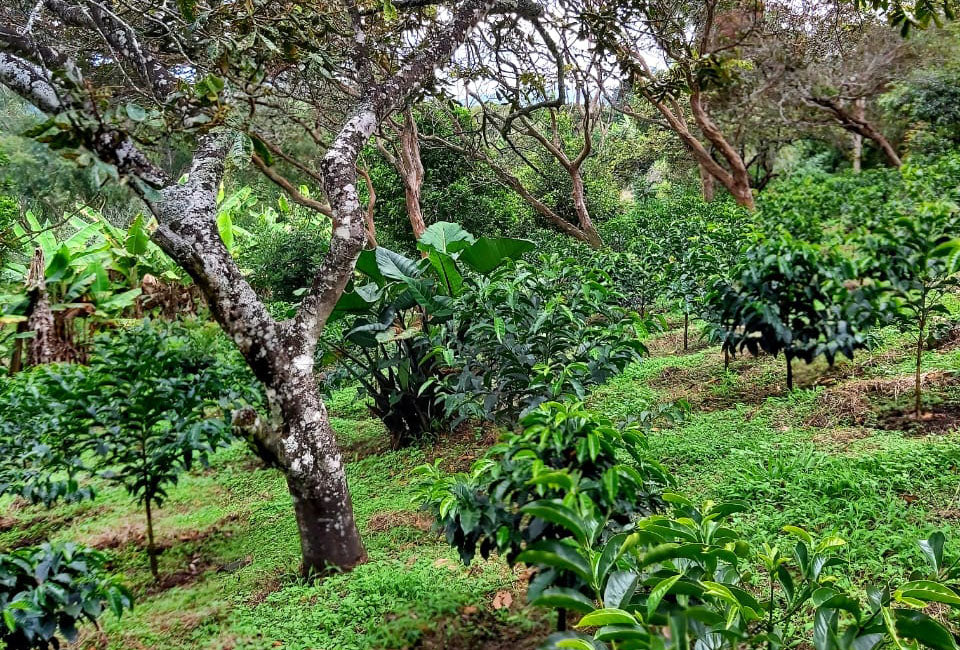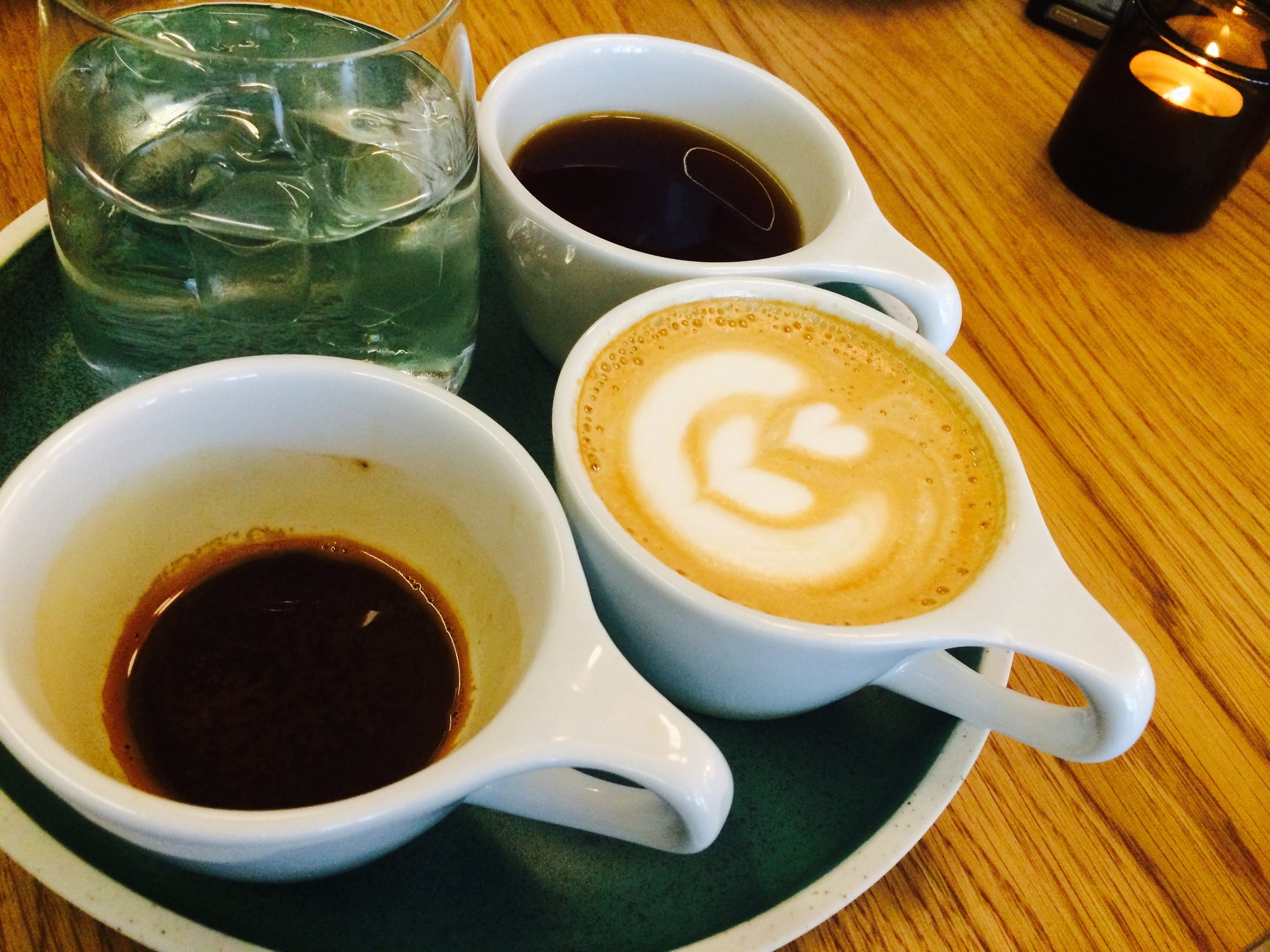Christopher's Geisha plantation is still very young. This is Christopher's first production year (2025), and it might not show its full potential. However, given the quality of the Geisha and Christopher's dedication, this is a very colorful coffee.
Previously, Christopher worked only with the traditional washed Colombian coffee processing with Castillo variety, which he still produces, because it occupies various plantations on the farm and the production is sold as standard coffee to the national federation of coffee growers or to regional cooperatives.
The Don Alberto farm is located at 2,200 masl in the department of Nariño, south of Colombia, in the Andean mountain chain and at a distance of 12 km from Galeras volcano provides fertile, volcanic soil.
During the day the temperature can reach 28C and in the night descend to 11C. At times, the temperature can descend more causing coffee leaves to burn. This large change in temperature slows down the metabolism of the coffee trees and cause the accumulation of a higher amount of sugars in the fruits giving them a sweeter flavor.
Also due to the altitude and the strong temperature change, the fog is usually very dense and present during some nights and early in the morning. This can also nourish the coffee trees with moist.
In 2022, Christoper started cultivating coffee specific varieties with focus on Geisha on his farm. Previously, Christopher worked only with the traditional washed Colombian coffee processing with Castillo variety, which he still produces, because it occupies various plantations on the farm and the production is sold as standard coffee to the national federation of coffee growers or to regional cooperatives. Finally after notice that the Geisha variety has had good development in Christopher's farm terroir he decided to plant other varieties for search the best physical and sensorial development and then experiment with different fermentation processes.
Christopher also works with a seasonal crop which is potato. This helps to pay the expenses of the coffee crop until the coffee can be harvested as it is only harvested once a year. The main difficulty is that mountain farming has low production, in comparison to agriculture of low warmer lands, as the topography for establish crops and work in them is more difficult. At times, the very cold seasons can arrive and during night the coffee leaves burn which can damage even the an entire production.
Christopher's farm extends beyond is 7ha, and there is mainly Castillo Tambo variety.
The amount of Gesha is 1,500 plants, 1,700 of Pink Bourbon, and there is more free terrain to plant more varietals which are in Christopher's nursery now (2025).
The work is done by Christopher by himself. It is the first year of the Gesiha and Pink Bourbon after planting, so they produce their very first fruit but its not properly a real harvest, its what is called here a "pepeo„ so the amount of coffee is enough just to samples and cupping.
In the other side the Castillo Tambo is a very good coffee not as exotic as the others, yet the trees produce a very good cup after processing if done right way. It is not a normal Castillo because the sub-variety Tambo indicates that has a diferent genetic composition. It was developed by Cenicafe specifically for the south of Colombia for its climate and Andean height.
Currently, Christopher is doing 2 types of fermentation processes which are Lactic and "Alcoholic". After the cherries are harvested, they will be selected a second time by hand, choosing only the ripest cherries, washing them to finally start the fermentation.
The dry process takes around 25 days for the washed coffee because Christopher dries by air, not by the sun. Because in that way he limits the volatilization of sensorial precursors. The finalising step is the time for stabilization in Grain Pro bags for a minimum of 2 months.
Christopher is still buying tools in first stance to develop a more complex and controlled fermentation, to prevent oxidation and ensure post-stabilization process.
Learn more about Christopher here:
https://coffeacirculor.com/blogs/news/introducing-christopher-romo-from-narino-colombia










